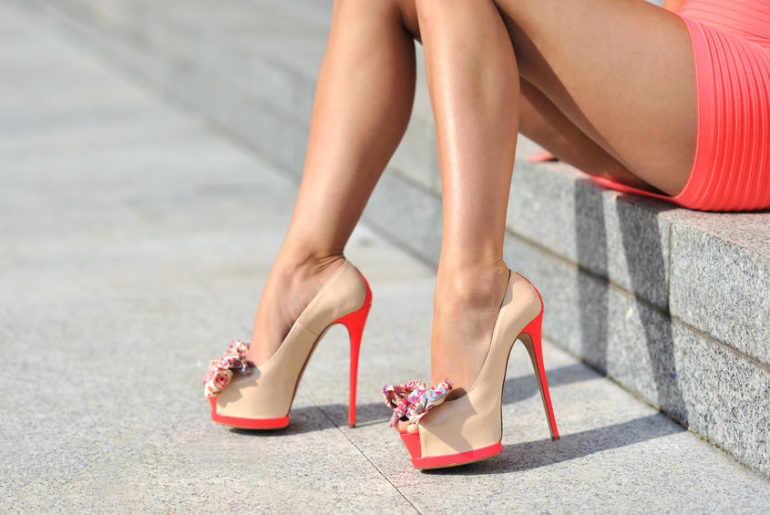So, what age should you stop wearing high heels? No matter what age you are, it’s important to feel sexy and confident. The old saying goes, if you got it, flaunt it. First, let’s take a look at some medical concerns of wearing high heels and the effect it has on the body.
BALANCE THE FACTS
A study performed by the Spine Health Institute found that 72% of woman wear high heels, 31% of women wearing them to work, and 50-77% wear them for parties and special occasions. According to a study at the University of Vienna’s Centre of Sport Sciences and University Sports, wearing heels 5 days a week or more can significantly shorten the muscles of the calves and thicken the Achilles’ tendon. In fact, the higher the heel, the more pressure on the forefoot or ball of the foot. A 1-inch heel causes a 22% increase in pressure in the ball of the foot and 3-inch heel causes a 76% increase. Overtime this can cause complications with your back, knees and ankles. Also, many people believe that pointy shoes, if worn frequently enough, can cause hammer toe, bunions and calluses.
WHO TOLD HER SHE SHOULD WEAR THAT?
There is a belief by many that certain styles and clothing should be age appropriate. Diet Chef, a UK diet food home delivery company, surveyed 2,000 women about the age at which it becomes inappropriate for women to wear certain items of clothing.
The Age Women Believe Other Women Should Stop Wearing Certain Fashions:
- Bikini, 47
- Miniskirt, 35
- Boob Tube, 33
- Stilettos, 51
- Belly button piercing, 35
- Knee high boots, 47
- Trainers, 44
- Leather trousers, 34
- Leggings, 45
- Ugg boots, 45
- Swimsuit, 61
- Tight vest, 44
- See-through chiffon blouse, 40
- Long hair, 53
- Ponytail, 51
PRESERVE THE SEXY
Whatever age you are, there are things that we can do to take care of our legs and feet. When you know you’re going to be on your feet all day, make the smart choice and wear flats or short heels. Save the higher heels for short events. Remember to stretch your calves and feet regularly. You also want to strengthen your core muscles especially the butt and thigh muscles. This will help with stability and support for when you wear heels. Regularly getting pedicures and soaking your feet in warm water with epsom salt can go a long way in keeping your feet right. Moisturizing your feet can help alleviate problems with corns and calluses.


